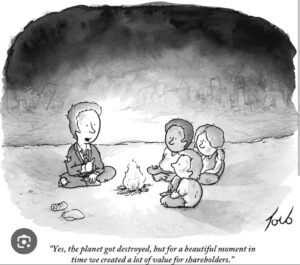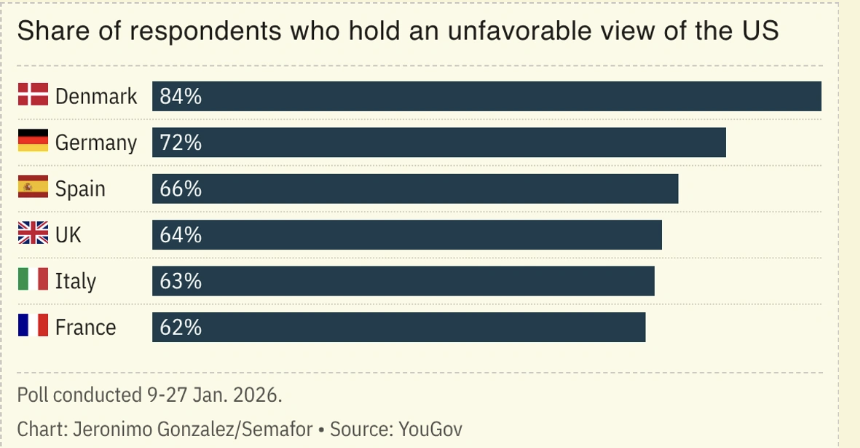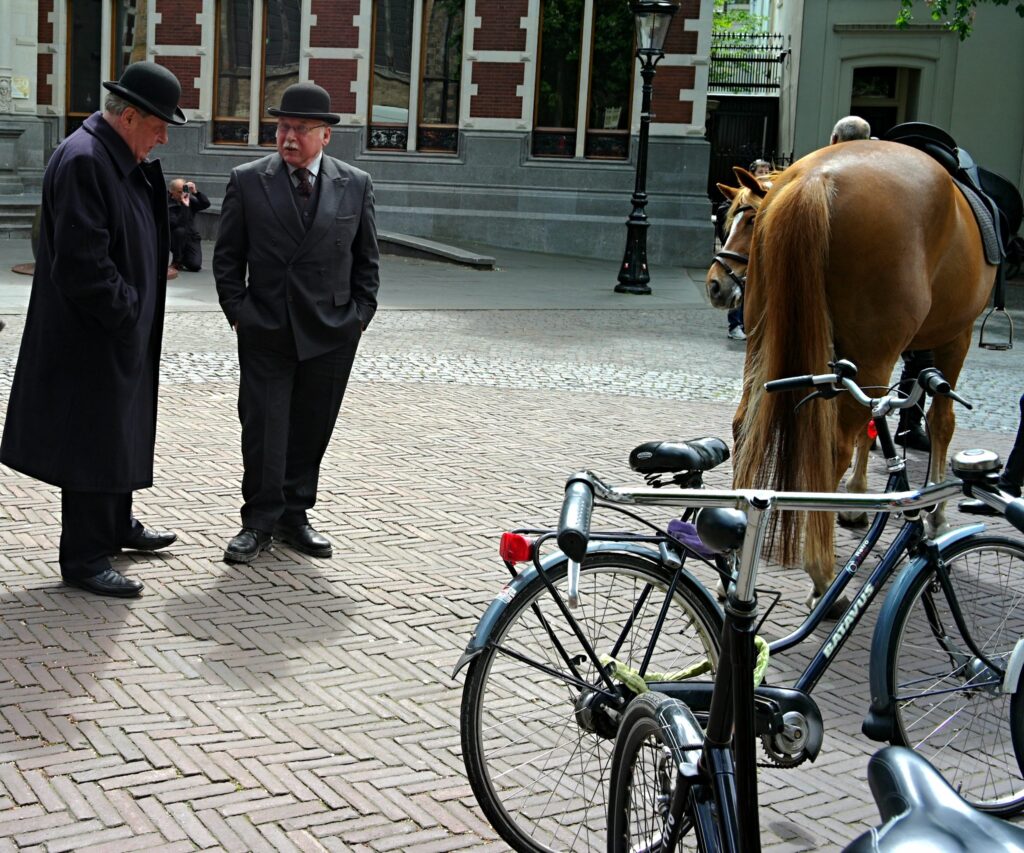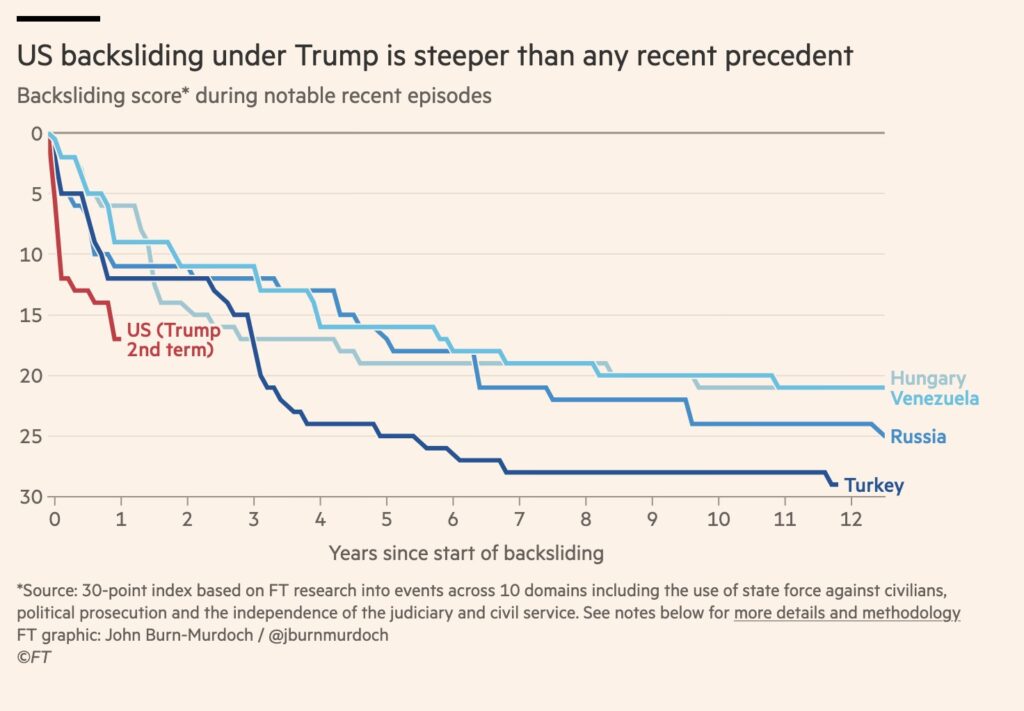Potter mania

Every time I come through King’s Cross, it’s like this. Has there ever been anything as enduring as Harry Potter’s fandom?
Quote of the Day
”When somebody says it’s not about the money, it’s about the money.”
- H.L. Mencken
Musical alternative to the morning’s radio news
A. Vivaldi / N. Chédeville | Op. 13 n. 4 – Sonata for oboe & b.c. in A major (RV 59) | P. Goodwin
New to me, but gorgeous.
Long Read of the Day
The left is missing out on AI
Really perceptive essay by Dan Kagan-Kans on how the Left — and academia — are making big mistakes in underestimating AI technology. I was particularly struck by this passage:
Publishing in journals requires peer review, and peer review is slow. As Zvi Mowshowitz, who writes perhaps the world’s most exhaustive newsletter on AI, said, “Nobody in real academia can adhere to their norms and actually be in the conversation, because by the time you’re publishing, everything you were trying to say is irrelevant,” a generation or two behind the cutting edge. Another incentive for researchers to leave for industry, then.
This splitting of a field that once would have been forced to coexist has probably made industry too optimistic about the pace of progress and made academia too skeptical. That then skews what’s heard by people who listen to academia but not industry — and nearly everyone with that tendency, today, is on the left. They hear only the skeptics, unaware that real science is taking place in the AI labs too (or especially), done by PhD’d researchers they might trust if only they sat in a faculty office.
Books, etc.
Robert Louis Stevenson’s 1879 book, Travels with a Donkey in the Cévennes, is an utter delight. I was first alerted to it by his biographer, Richard Holmes in his book, Footsteps: Adventures of a romantic biographer, the first chapter of which recounts how he set out in 1964 to walk 220km through the Cévennes in Stevenson’s footsteps.

It’s an irresistible read, so I started on it again, and laughed out loud when reading his account of his first day on the journey. So here it is:
In an odd way, the star of Stevenson’s account of his journey is not him but the little donkey he purchased to accompany him and carry his baggage. She was, he wrote, the size of “a large Newfoundland dog” and the colour of “an ideal mouse”. He christened her Modestine and then discovered that she was an awkward character who “refused to climb hills,… shed her saddle-bag at the least provocation,… and in villages swerved into the cool of the beaded shop-doors”. He wrote that he often had to beat her with a stick (about which he felt increasingly guilty) and wept when he sold her at the end of his journey.
So when I think of RLS it’s Modestine who always comes to my mind. Accordingly, when we bought a Tesla in 2020 and discovered that we could give it a name, I of course chose Modestine, because the vehicle can, at times, appear to have a mind of its own.

Screenshot
This puzzled our friends, but I felt it was vindicated when one day I saw my wife — normally the politest person in any room — impatiently thumping the steering wheel and shouting “Come on, you stupid donkey”.
You may wonder what propelled me down this particular rabbit hole. It was just a travel piece in the weekend edition of the Financial Times about a couple who had just walked the trail courtesy of a company called Macs Adventure (two-week trip on the full trail from £1,795).
As Miss Jean Brodie famously observed about chemistry, “For those that like that kind of thing, that is the thing they like.”
Linkblog
Something I noticed, while drinking from the Internet firehose.
- Mark Zuckerberg overruled 18 wellbeing experts to keep beauty filters on Instagram
Hannah Murphy, writing in yesterday’s Financial Times:
Mark Zuckerberg told a jury on Wednesday that he overruled concerns about teen wellbeing from staff and 18 experts to lift a ban on Instagram beauty filters because he was concerned about “free expression”.
The billionaire social media boss faced a grilling in a Los Angeles court on Wednesday as he battles a landmark legal claim that social media is addictive to children.
Instagram temporarily suspended beauty filters — which digitally alter people’s appearance — to conduct a review of the features in 2019. All of the 18 experts Meta hired concluded they presented a wellbeing issue.
Zuckerberg told the court there was a “high bar” for demonstrating harm, calling the restrictions “paternalistic” and “overbearing”, adding he “wanted to err on the side of people being able to express themselves” in making the decision.
As usual, he ‘erred’ on the side of profitability and growth.
Feedback
David Ballard was struck by Monday’s Quote of the Day in which OpenAI’s Sam Altman said:
”I think that AI will probably, most likely, sort of lead to the end of the world. But in the meantime, there will be great companies created with serious machine learning.”
It reminded him of a lovely New Yorker cartoon which (I think) came out sometime during the pandemic lockdown.


Screenshot
This Blog is also available as an email three days a week. If you think that might suit you better, why not subscribe? One email on Mondays, Wednesdays and Fridays delivered to your inbox at 5am UK time. It’s free, and you can always unsubscribe if you conclude your inbox is full enough already!

















